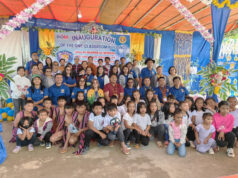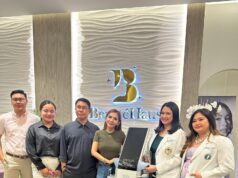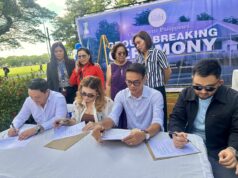LA PAZ, Tarlac – Long before the twin virtues of "sipag at tiyaga" (hard work and perseverance) became fashionable, farmer-turned-businessman Johnson Manuel had already stumbled upon this magic formula.
By dint of hard work, he had risen from the depths of poverty to the soaring heights of success.
His is a classic rags-to-riches story. But with a difference: Ever true to his class origin, instead of just fading away to live off his hard-earned wealth, he had opted to take the more difficult road.
In a land where poverty is a curse, from which every one of us should escape by hook or by crook, to go back to it to rescue others is a never-heard thing. But this is exactly what he would love to do.
In 2001, he ran for mayor of this town and won.
"This is my destiny – to live among my kind, to help lift them up, and share the bounties of the world with them," said Manuel, who is on his third and last term as municipal chief executive.
And this is his story.
HUMBLE BEGINNINGS
Born Dionisio Manuel on April 8, 1937 to a family of poor farmers in Barangay Balanoy (now Rizal) in La Paz town, "Cong Johnson," as he is fondly called, had to struggle early in life against seemingly insurmountable odds.
Try as they might, Manuel’s parents could not send all of his siblings to school. To Cong Johnson and his three brothers and sister, it was a zero-sum equation: one man’s gain was another man’s loss.
Still, education was their only way out. So Manuel worked doubly hard just so he could go the intermediate school in Barangay San Roque. (The school is now known as the Ingracio Castañeda Elementary School.) Early morning and late in the afternoon after school hours, he would join his father in tilling the soil.
"Farming was a backbreaking work, but there was no giving up," he related. To surrender then was to compromise one’s future, if not totally lose it.
He finished high school at the Great Eastern Institute.
Enjoying a short-lived moment of relative prosperity, Cong Johnson was able to enroll at the National University in Manila for a degree in Mechanical Engineering.
"I was a working student but just the same I was forced to stop going to college because my younger brothers and sister had by this time had to go to school also.
We had to make a choice, and I thought I had to make the supreme sacrifice," he said.
Once more, he went back to the farm, to eke out a living, not only for himself but for his family as well.
FALLING IN LOVE
Manuel’s life took a different turn when he married Antonia Masiclat in 1955.
He continued farming a two-and-a-half-hectare rice land.
In 1960, he abandoned farming to work as a bus fare collector at the Pantranco Bus Lines, earning P6.25 a day. "My basic pay was P5.50 but I was also getting P0.75 as overtime pay," he said.
Although he worked as bus conductor in only about three to four years, this job allowed him "to learn about business in a short time."
"I sold fish inside the bus and got paid for buying grocery items for a storeowner in Pampanga. That was I was able to save around P10,000, a huge amount at the time," he related.
With the amount he had saved, he was able to buy a passenger jeepney, which he used to start the transportation business he had long been thinking of. The vehicle plied the La Paz-Tarlac-Cabanatuan route.
ON THE ROAD
TO SUCCESS
In no time at all, this lone vehicle became a fleet of six passenger jeepneys. "I was able to buy more jeepneys at P2,700 each."
In 1976, a great flood engulfed the province, leaving the transport industry in tatters.
"My vehicles were being corroded with rust under waist-deep floodwaters, and so, instead of waiting for them to turn completely to rust, I sold them," he said.
Two years later, he went back to agriculture, but this time in a different role. With a startup capital of P300, he began buying and selling palay.
His buy-and-sell business thrived, aided in no small way by his newfound friends.
Towards the end of the 1980s and during the early 1990s, having lost his first bid at helping people via the electoral exercise, he went to Moncada and planted sorghum in 600-hectare land, which he sold in Manila.
Demonstrating his characteristic hardworking attitude and Job-like patience, he soon became known as the "Sorghum King of the Philippines."
FAMILY MAN
He also emphasized the value of family. "It is your source of strength. As leaders we should think of the community as consisting of many family groups, each of which is like our own family, with the same basic needs – love, protection, affection, quality time, quality life," he explained.
Manuel knew very well what he was talking about. His own family was a study in successful family life. His own children – Eduardo (born: 1958), Ernesto (1960), Tessie (1962), Josephine (1964), June (1966), Irene (1968), Michael (1970) and May (1972)– are now all successful in their chosen careers. They are now a mechanical and an electrical engineer, a law graduate, a businessman, a manager, a nurse, a computer engineer, and a medical doctor specializing in obstetrics and gynecology.
This is not surprising because, although they are all grown-ups now, Manuel continues to provide support in whatever form possible. In fact, to start the business career of one of his children, he entrusted to him a gasoline station franchise he had bought.
The others got their share of support, too: many of them are managing businesses opened up by their father.
"To me, fatherhood means never letting your children down. To me, being mayor means being a father to the town folks with the duties and responsibilities attendant to the job," he said.



